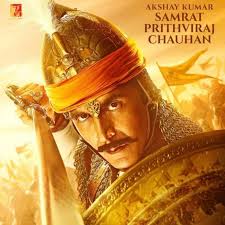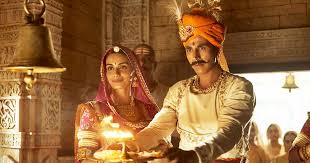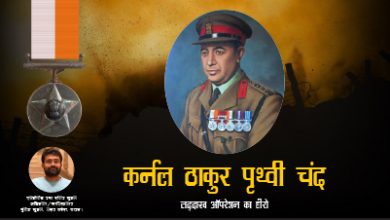Samrat Prithviraj forgets Prithviraj himself while focusing on Muslim Invaders

Director Dr Chandraprakash Dwivedi has reportedly spent 18 years with the story of Samrat Prithviraj. But the final outcome is such that you wish he didn’t make it. It is all thunder and no impact. It fails because the focus is to demean Muhammad Ghori and other Muslim invaders rather than highlight the story of Prithviraj Chauhan as a ruler.
Akshay Kumar can always ace flamboyance. Yet, every recent film of his has been the same, but in different outfits. The business strategy of selling nationalism probably needs revision. Akshay as Prithviraj Chauhan does not quite evoke the kind of sentiment the film aimed to. Even if the idea is to ‘change’ the narrative of history textbooks in schools that have favoured the Delhi sultanate and its rulers, the film doesn’t fulfil it. What Samrat Prithviraj ends up highlighting is that invasion of India was only possible due to a lack of unity among its rulers.

Ratan Singh and Prithviraj Chauhan are both challenged and betrayed by other Hindu rulers more than the Muslim invaders. And that says something.
Akshay as Prithviraj Chauhan does not quite evoke the kind of sentiment the film aimed to. Even if the idea is to ‘change’ the narrative of history textbooks in schools that have favoured the Delhi sultanate and its rulers, the film doesn’t fulfil it. What Samrat Prithviraj ends up highlighting is that invasion of India was only possible due to a lack of unity among its rulers.
Ratan Singh and Prithviraj Chauhan are both challenged and betrayed by other Hindu rulers more than the Muslim invaders. And that says something.
While Manushi Chhillar’s debut is not exactly impressive, for the most part, she holds her own. The glaring age difference between her and Akshay is too in-your-face to look beyond. They have no chemistry.
However, the idea of a woman who dared to defy her father and fall in love with his enemy, while being bound by patriarchy, is always a good story to stress on. The film, for all its pitfalls, does well to discuss the rights of women, especially to rule. Sanyogita’s courage to defy norms in her time definitely needs its own arc spinoff.
There is no unanimous conclusion but it’s believed that Sanyogita committed jauhar. The scene in the film that tries to exemplify her bravery ends up being a caricature with a dance and a sprinting run to the fire. It’s the least sensitive portrayal of a woman who is faced with the choice of either dying by fire or being raped by an invader.
Prithviraj and dharma
Samrat Prithviraj emphasises his adherence to the Hindu dharma. His letting go of Mohammad Ghori after the battle of Tarain is seen as a mark of his benevolence.
As a war strategy, it’s not exactly the best idea to let your enemy go. And it does play out in the way you would expect as a slighted Jaichand, Sanyogita’s father forms an alliance with Ghori.
The ending of the film is drawn from Bardai’s imagination of Prithviraj’s demise in Prithviraj Raso rather than historical facts. That is exactly the issue—the film seeks to counter historical imbalance through lore instead of facts.
In fact, Bardai is also depicted more as a clairvoyant than a poet. While Sonu Sood does justice to the poet’s role, it is unclear how much justice the film does to the actual character.
Ashutosh Rana and Sakshi Tanwar have limited screentime, but ace their bits, especially Tanwar. She is a force to reckon with.
This article has not been edited by our staff and has been posted here to update our users.








